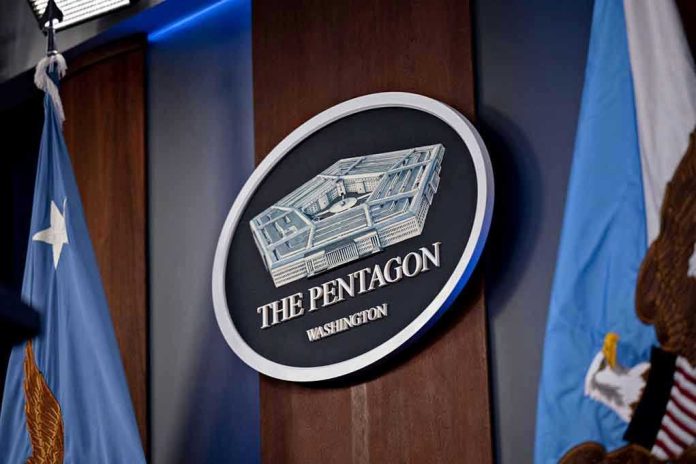
A top U.S. intelligence official was fired after his agency’s bomb-damage report on Iran contradicted President Trump’s claims—exposing the fierce battle over truth, loyalty, and national security in Washington.
Story Snapshot
- The Pentagon fired DIA Director Lt. Gen. Jeffrey Kruse after his agency’s assessment of Iran strike damage leaked and contradicted the White House’s narrative.
- The leaked report suggested Iran’s nuclear program could be restarted within months, not “destroyed” as Trump claimed.
- Kruse’s removal marks a high-profile clash between intelligence analysis and political messaging.
- Congressional critics warn the move erodes the independence of U.S. intelligence agencies.
Intelligence Report Leak Sparks High-Level Fallout
Defense Secretary Pete Hegseth fired Air Force Lt. Gen. Jeffrey Kruse, Director of the Defense Intelligence Agency, after a preliminary bomb-damage assessment of U.S. airstrikes on Iran was leaked to major media outlets. The confidential DIA report found that Iran’s nuclear infrastructure suffered only temporary setbacks and could be restarted within one to two months, directly challenging President Trump’s public claims that the strikes had completely destroyed Iran’s nuclear capabilities. The leak triggered political controversy and a rapid leadership shake-up at the DIA.
This unprecedented firing highlights the growing tension between objective intelligence analysis and political narratives. The Trump administration, determined to project military strength and success, swiftly denounced the leaked assessment. President Trump and senior officials insisted that the Iran strikes were a “total success,” publicly disputing the DIA’s findings and demanding an investigation into the source of the leak. The fallout extended beyond Kruse, with two Navy admirals also removed from their posts that same week, signaling a broader pattern of leadership changes within the military and intelligence communities.
Background: U.S.–Iran Tensions Shape Administration Response
The conflict over the DIA assessment is rooted in decades of U.S.–Iran antagonism, especially regarding nuclear development. The Trump administration’s strategy has favored direct military action and withdrawal from previous diplomatic agreements, aiming to cripple Iran’s capacity and assert American dominance. The June 21, 2025, airstrikes on Fordow, Isfahan, and Natanz were intended as a decisive blow, but the intelligence community’s cautious analysis contrasted sharply with the administration’s assertive messaging. This dynamic has played out repeatedly, with intelligence officials facing pressure to align their findings with the White House’s goals.
Previous incidents under President Trump include the firing of top intelligence and military leaders who opposed administration narratives, as well as revocation of security clearances for officials critical of White House policy. Congressional Democrats, led by Sen. Mark Warner, have raised alarms about the politicization of intelligence, arguing that such moves threaten agency independence and undermine the integrity of national security decisions. Meanwhile, supporters of the administration claim that strict discipline is needed to maintain unity and effectiveness within the ranks.
Implications: Independence of Intelligence Agencies at Risk
The immediate impact of Kruse’s firing is a disruption in DIA leadership and a chilling effect on intelligence analysis across agencies. With Christine Bordine stepping in as acting director, the DIA faces increased scrutiny from both the administration and Congress. The controversy has heightened tensions between the White House and the intelligence community, raising questions about whether future assessments will be shaped by facts or by political expediency.
Long-term risks include the erosion of agency independence and the potential for self-censorship among analysts wary of contradicting official narratives. Experts in defense and civil-military relations warn that firing officials for inconvenient assessments undermines U.S. credibility and could damage relationships with allies and global partners. The precedent set by these actions may influence recruitment and morale within the intelligence sector for years to come.
While the Pentagon and DIA have cited “loss of confidence” as the reason for Kruse’s removal, they have provided few details. The ongoing investigation into the leak, coupled with the public dispute over Iran strike effectiveness, ensures that debate over the balance between honest intelligence and political loyalty will continue to shape America’s security landscape.
Sources:
DIA chief oversaw initial Iran bombing assessment, steps down
Air Force DIA Director Kruse Fired after Iran Strike Assessment Leak
Hegseth fires head of Defense Intelligence Agency
DIA Director Lieutenant General Kruse Fired



